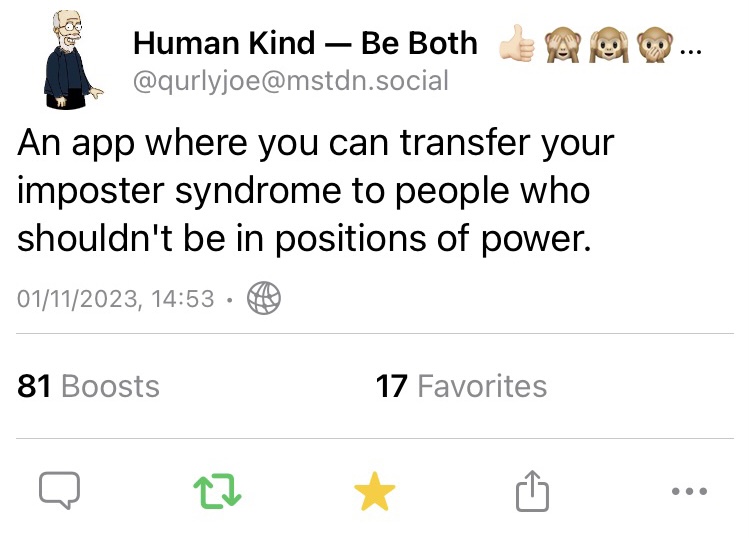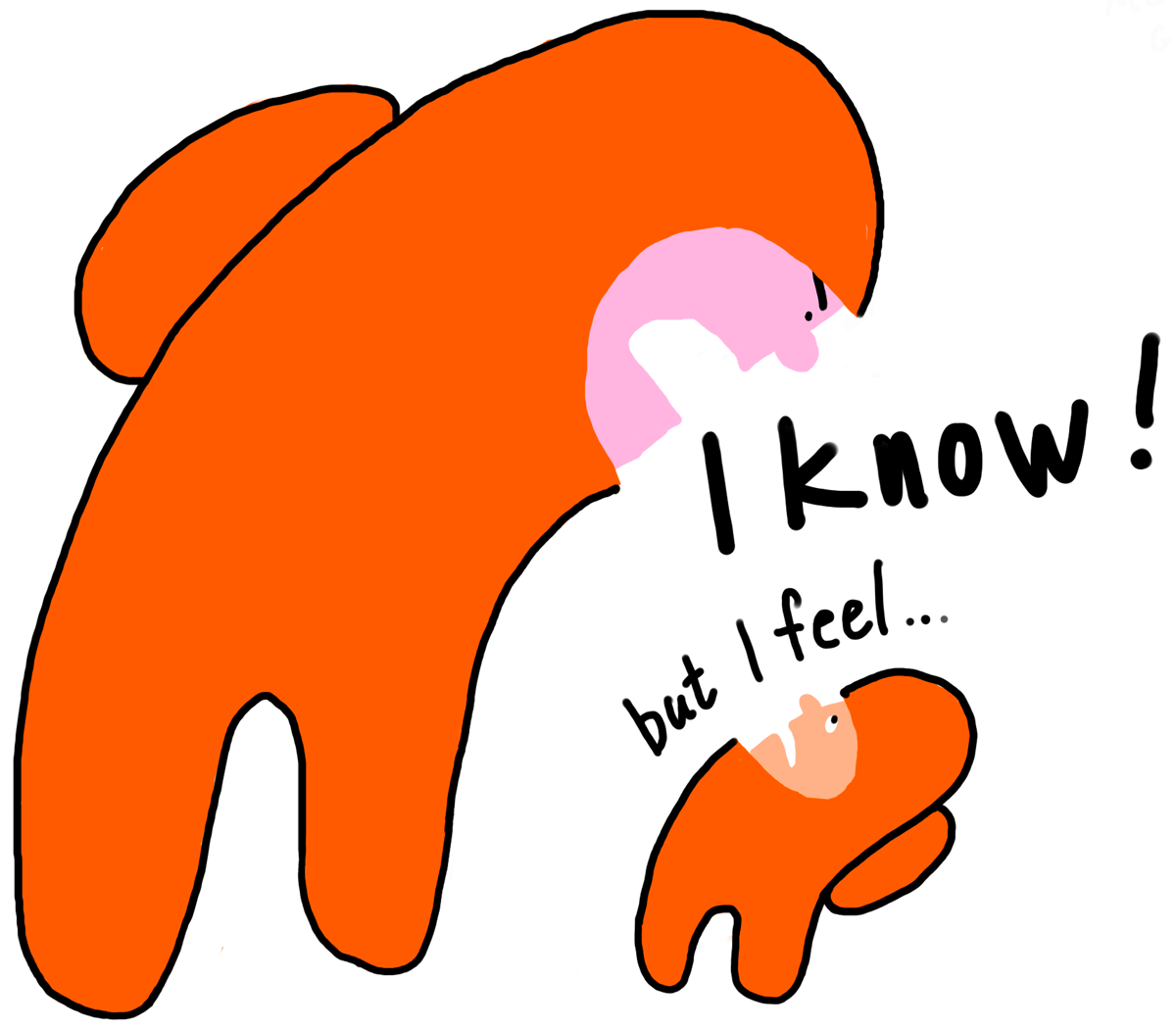A speculative blog about unjust hierarchies and the imposter syndrome in the workplace. This blog is part of my research into practical ethics in the context of design: GoedMaken.org. (Mostly Dutch, but working on that.)
We are used to explicit hierarchies like the boss-staff, child-parent or teacher-pupil. These hierarchies structure society and help us function in our different roles. They are recognised and explicit. Society also has many types of implicit hierarchy we all encounter in our work and professional life.
From my personal experience:
- The senior trumps the junior
- Using explicit knowledge trumps using implicit knowledge
- Using ratio trumps using intuition
- The professional trumps the expert by experience
- Extraverts trump introverts
- Men trump women and other genders
- … add your own experience…
In my view these hierarchies prevent a lot of people and ideas in their growth. These hierarchies can shut you up.
Ambitious people that don’t identify with the privileged/ traditional left side of the list, have to work hard to be recognised in their achievements. These high achievers can be vulnerable to the imposter syndrome.
Although imposter syndrome is often seen as a personal problem, I like to suggest mild cases in a professional setting can also be caused by these suffocating hierarchies. It is a social problem.
Imposter syndrome
In my research into ethics I often expected to be unmasked as a fraud with no knowledge and insights at all. I did not complete an academic training on ethics, I don’t seem to speak the language and I can hardly find enough time for study next to my busy design practice.
I am not even close to being scholar, and therefore have no right to touch the touchy subject of ethics.
At the same time many people applaud my efforts in making ethics normal and easy. There is a great need for that amongst practical professionals like designers. So I solder on, driven by intrinsic motivation (I must understand), but not feeling very confident.
Than I saw this analysis of imposter syndrome:
Most people recognise this feeling: when talking about ethics to others, I feel my knowledge is small compared to everybody else.
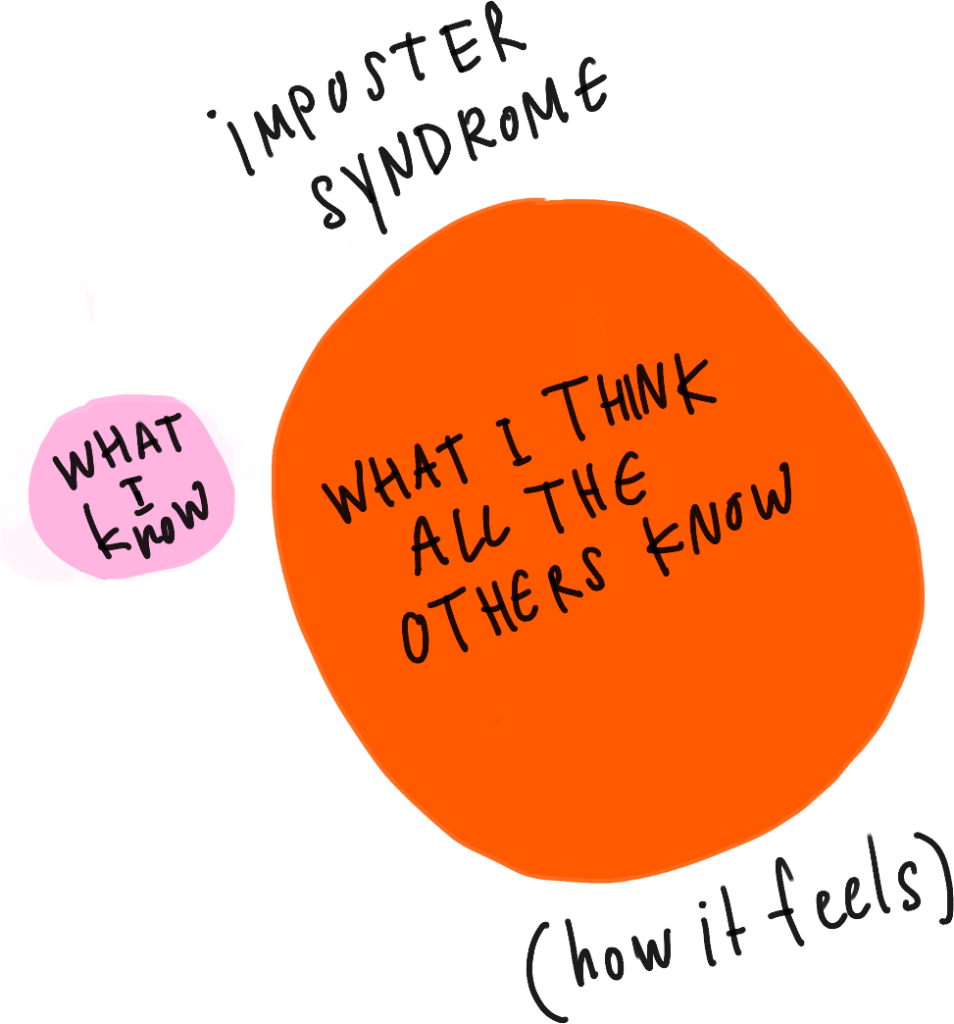
But in reality most people I speak to only have a little knowledge, which they share when I ask. It is in my head that I attribute all the knowledge to all individuals.
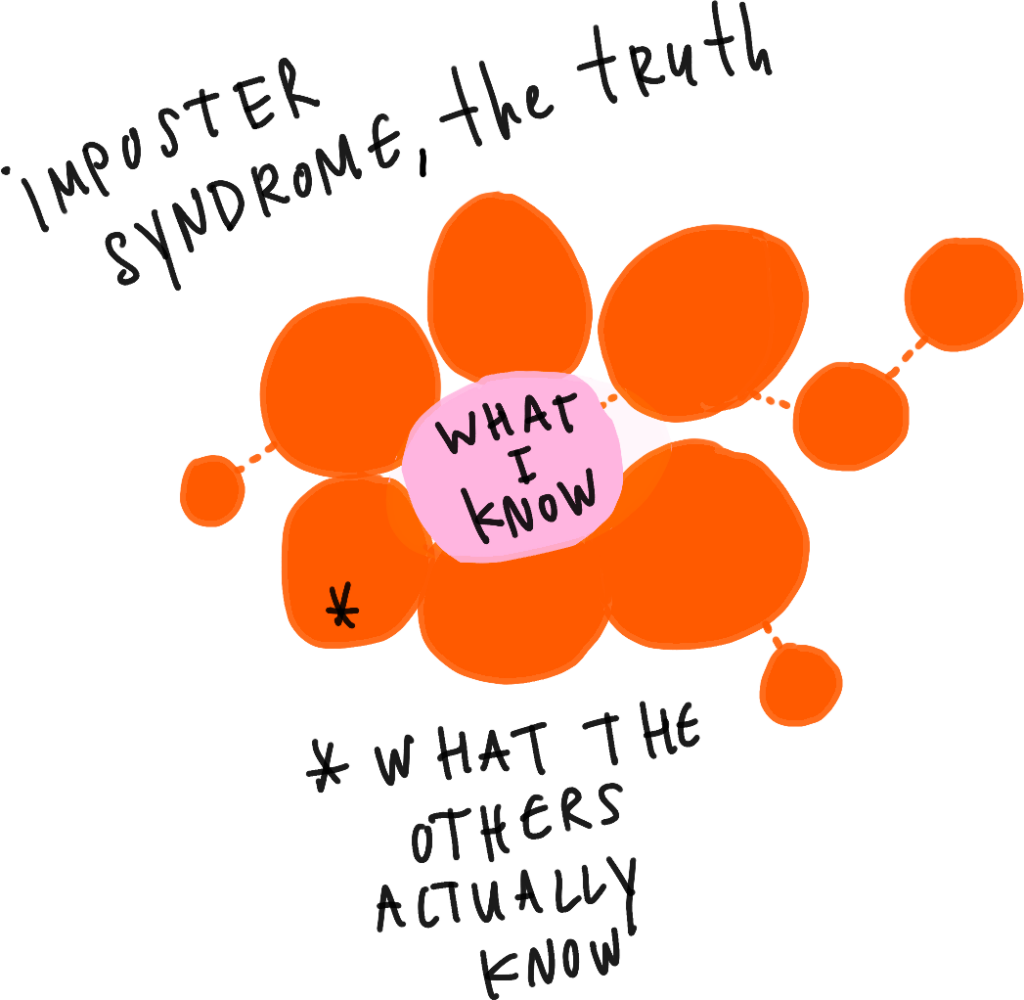
We may all be suffering from imposter syndrome! Many of the people I met actually confessed to that in our talks. We value the knowledge of others higher, especially when we follow the hierarchies listed above. A confident, educated white male, senior in the field and extrovert in communication can be very credible.
The characteristics of imposter syndrome
Very well mind describes 6 types of imposter syndrome. In short (my text):
- The Perfectionist. You should be absolutely perfect.
- The Expert. You must know everything there is to know about a particular subject or topic.
- The Natural Genius. Everything new should come naturally to you.
- The Soloist. You should not need help.
- The Superperson. You must be the best and hardest worker.
When I read about the characteristics of imposter syndrome, I feel the sufferers must be really nice people. Not kind to themselves and that is sad, but they care about what they do and doubt their decisions and abilities. These can be very positive traits: caring about what you do makes your efforts interesting and having doubts makes you a great partner to cooperate with. When in a safe place, imposters are a positive force because of their open attitude. Their vulnerability makes them strong and important team members.
So again: is imposter syndrome a personal problem? What if we look at it as a social problem? A problem between people?
Arendt on plurality and action
In my ethics research I am really smitten with the important work of Hannah Arendt. There are two concepts in her work that seem to be relevant in this context.
- First is the notion of plurality. People differ from each other, and these differences should be a starting point in any collaboration or sharing of ideas. The differences are both a fact and a great source. And all people are as important as the other.
- Second is the idea of action: in order to change the world for the good, people should share new ideas and cooperate in realising these. Change is a social process, doing good is a social process.
Big shortcut here: so we must celebrate differences between people, and encourage the sharing and realisation of ideas, and thus change the world together. Arendt talked about society and politics. But I find her work very valuable for creating projects on a smaller scale too.
What if we take her thinking at heart and look again at the hierarchy list?
- We need both the senior and the junior
- We need both the explicit knowledge and implicit knowledge
- We need both the ratio and intuition
- We need both the professionals and expert by experience
- We need both the extraverts and introverts
- We need both the men and women and other genders
To allow this we need a safe space
As most companies and organisations are not designed to stimulate this open type of cooperation we have to design it. To get introverts to open top might take effort. And to allow yourself te listen to the trainee having an intuitive thought can be hard for seasoned professionals with a lot of theoretical knowledge.
Helpful hierarchy
We all know the boss-staff hierarchy and how that can both be productive and desastreus. The succes depends very much on the approach people have towards the hierarchy. A team that uses hierarchy only as a means to determine roles and smooth up a process is likely to be more successful than a team that suffers from a power hungry leader.
By paying attention to a loving and safe process we can move from team members suffering from the imposter syndrome, via understanding vulnerabilities to shared knowledge. And no one has to be the imposter anymore.
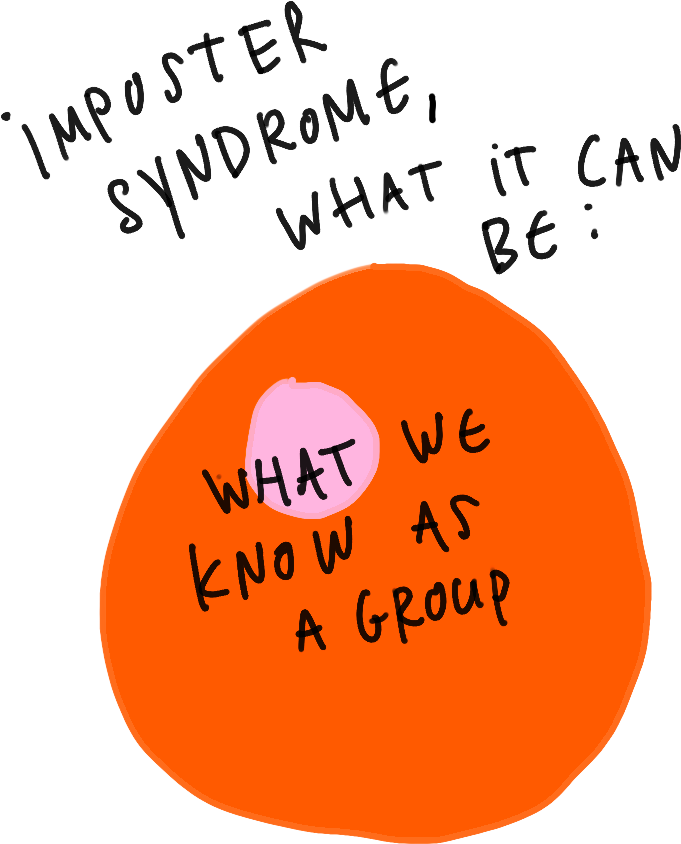
Everything is personal
So will work become therapy? No, really no. But it would be great if who you are as a person and who you are as a professional matches. Being able to get personal is important for being happy and safe. No need to leave yourself at the office doors.
In my ethics research I found that people especially connect to it only after I asked them about their own definition of good; when I tapped into their personal story. I think this translates to many design projects: when we put our own knowledge and experience at the center of the discussion, the imposters evaporate and we all have many things to say and ask.
If we challenge existing hierarchies and fixed ideas about being a professional, we might improve both our work and happiness.
Let’s foster and cherish vulnerability. Let’s all be recovering imposters!
I end this blog with the best toot ever:
